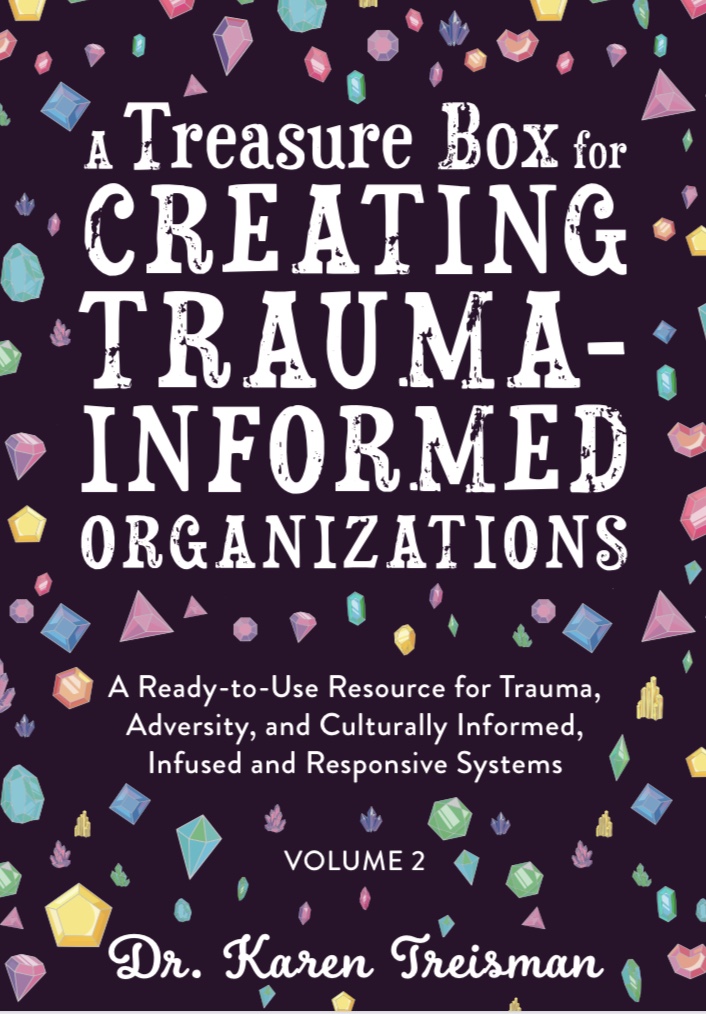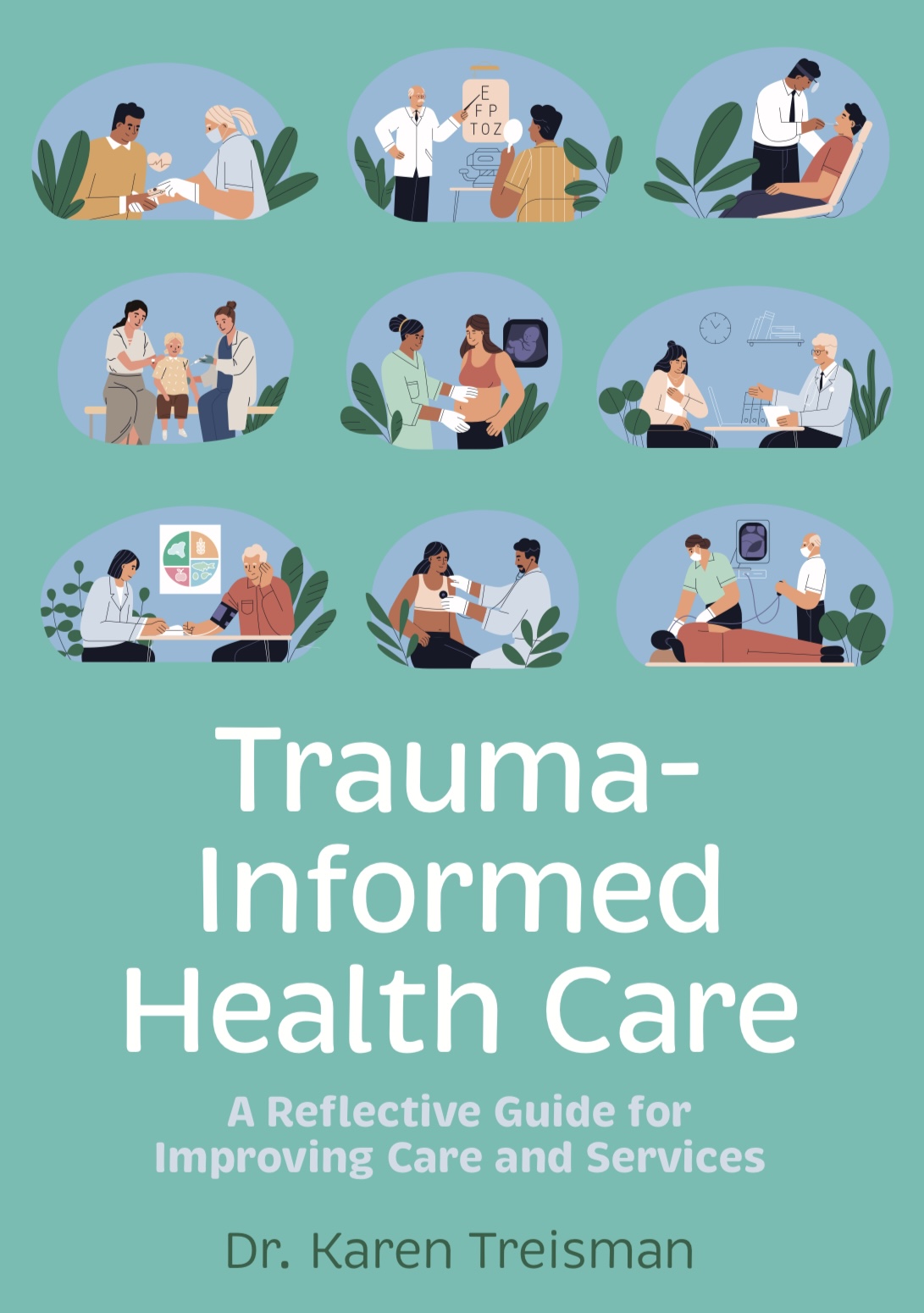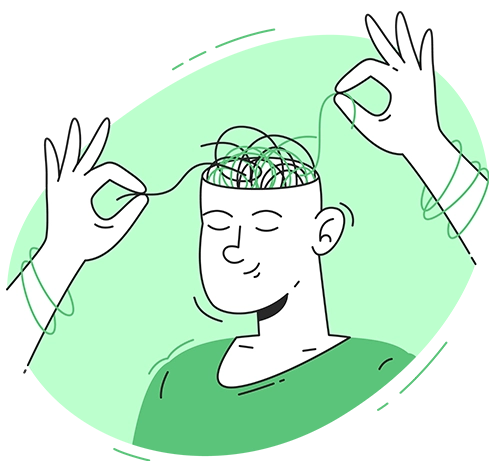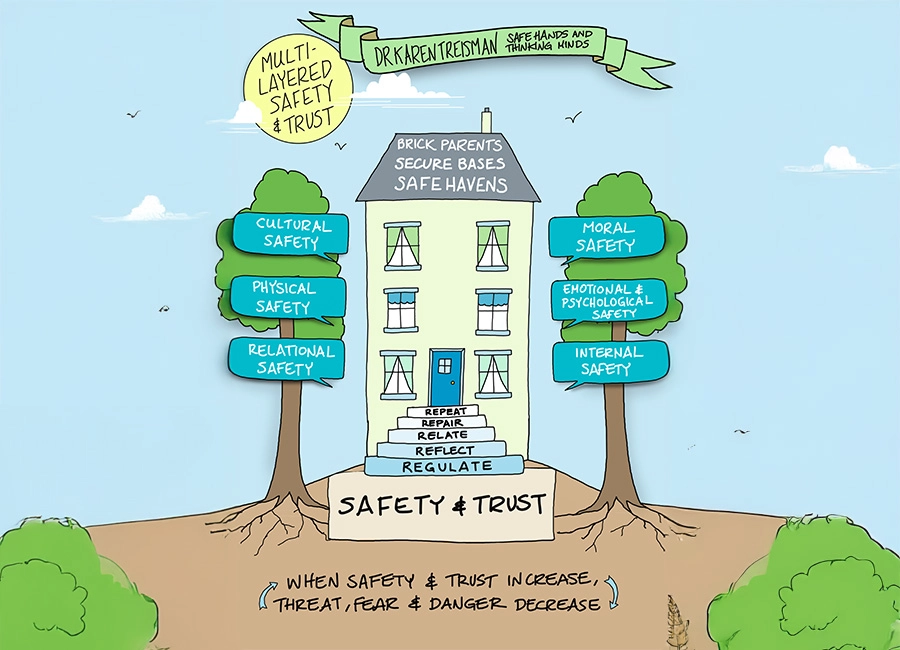
Trauma-Informed Organizations
This page is dedicated to sharing new developments, practical tools, and reflective resources that support culturally, adversity, and trauma-informed, infused, and responsive organizational and system change.
You’ll find new releases, learning opportunities, podcasts, resources, and free materials to help you create meaningful, sustained organizational and practice change.
We at Safe Hands and Thinking Minds also offer a range of consultation, support, and training packages to support and enhance this transformation.
Introduction to Adversity, Culturally, and Trauma-Informed, Infused, and Responsive Practice
An adversity, culturally, dissociation, and trauma-informed, infused, and responsive organizational lens acknowledges and advocates that being “trauma-informed” is so much more than a buzzword, a one-off training, a fruit bowl in reception, or a nicely worded policy gathering dust on a shelf. It’s not a tick-box or a quick fix. It’s about meaningful, multi-layered, whole-system transformation, and it’s an ongoing, evolving journey.
This work is about supporting, creating, embedding, and sustaining cultural and paradigm shifts across all levels of an organization, from policies to supervision (not “snoopervision”), from team meetings to physical spaces, from recruitment to the language used, and beyond.
It’s about changing not just what systems do, but who they are, their very fabric, their DNA, their bones. It’s about humanising systems: making them healthier, more relational, more connected, and more reflective. You can’t just sprinkle trauma-informed ideas on top; you have to bake and weave them into the everyday feeling and functioning of a place.
Please see the Infusing & Weaving Worksheet below for more on this.
Under a trauma-informed and infused process, this knowledge, values, principles, & assumptions aim to be embedded into the culture of the organization, & are ideally owned & contributed to by everyone, including those from multiple levels, roles, & those with lived experiences.
A trauma-informed process cannot be trauma-informed without being interconnected with areas of cultural humility, cultural inclusiveness, & cultural responsiveness, including integrating & acknowledging historical trauma, power, oppression, cultural trauma, social injustice, intersections of identity, & inter-generational trauma.
Within trauma-informed organizational change there are various steps, guiding values, & stages; however, like with people, this can be slow, complex, not linear, & messy. Therefore, the progress, development, embedding, & sustaining of meaningful trauma-informed ideas, attitudes, policies, & practice is an ongoing process & a journey.
Our Passion and Journey
Dr Treisman and associates passionately believe in social, contextual, societal, & systemic impact & that trauma-informed and infused practice is a social movement.
As the Alexander Den Heijer adapted quote says, “If the flower doesn’t bloom, you don’t try to fix the flower, and you certainly don’t blame the flower, but you try to make environments which support flowers to bloom”.
Therefore, we need to make adversity, culturally, and trauma-informed, infused, & responsive environments which not only acknowledge, respect, & are structured around the pervasive, extensive, & multi-layered impact of trauma, dissociation, toxic stress, and adversity in our societies; but also, ones which actively resist & reduce further re-traumatising, blaming, marginalising, exclusion, & oppression.
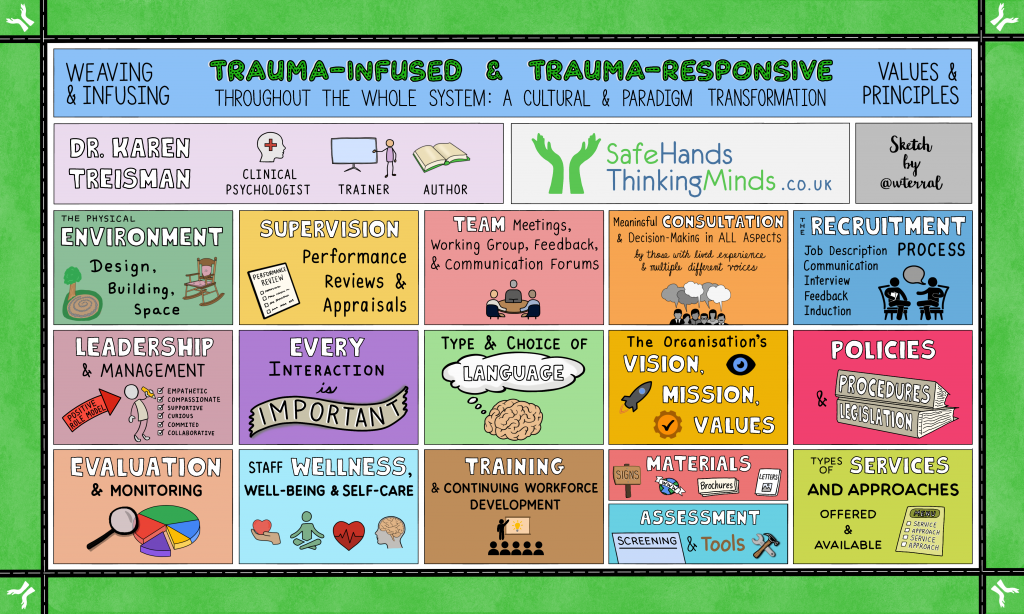
Dr Treisman and associates have also experienced the vast difference, impact, & physical/social/spiritual/emotional consequences of working in traumatised, trauma-inducing, and unhealthy systems; verse working in connected, supportive, healing, & nurturing teams. This has further validated & fuelled their passion & dedication to trauma-informed organizational practice.
To deepen this further, Dr Karen Treisman was awarded a Winston Churchill Fellowship, travelling to 14 cities across the U.S., attending international conferences, and meeting with over 100 specialists in this area. The goal: to learn from global best practice in culturally, adversity, dissociation, and trauma-informed, infused, and responsive systems.
You can read the report from that trip here- and see it expanded further in Karen’s Trauma-Informed Organizational and Health Care books.
A huge thank you to the many individuals and organizations who generously shared their time, energy, and wisdom, and to the Winston Churchill Fellowship for this phenomenal opportunity.
We offer a range of training, consultation, thinking spaces, and support packages, and have also created a suite of free resources and links (see below). We are currently working with organizations of all sizes in the UK and internationally, including in Africa and Asia across:
Social services and children’s services
Residential care
Youth justice, probation, police, and prisons
Foster care, kinship, SGO, and adoption systems
Schools and education
Healthcare and hospitals
Homelessness services
Domestic violence and trafficking organizations
Our Literature around Trauma-Informed Health Care
by Dr Karen Treisman
Dr Treisman has a very exciting new book which has now been released. Trauma-informed healthcare is a comprehensive reflective resource explores the values, principles and practical applications of trauma-informed and infused health care. Trauma-Informed Health Care introduces the different types of trauma including medical and health trauma and the impact of adversities, social inequalities and stressors. It explores their effects on health and the body, and on people’s relationships with health providers.
Key issues addressed include the importance of cultural humility, the effects of secondary and vicarious trauma, burnout and moral injury. It also covers the critical issue of organizational trauma: how to avoid practice which has potential to traumatize or retraumatize, and the role of cultural understanding, language, leadership, staff wellbeing and the physical environment.
Drawing substantially on the experiences of people who use services and active practitioners, this book spans diverse settings, from doctor’s surgeries to hospitals and allied health services. It reveals how “every interaction can be an intervention” and provides you with practical examples, graphics and reflective exercises to support you to bring about positive change.

The Trauma Treasure Deck: A Creative Tool for Assessments, Interventions, and Learning for Work with Adversity and Stress in Children and Adults Cards

A Treasure Box for Creating Trauma-Informed Organizations: A Ready-to-Use Resource for Trauma, Adversity, and Culturally Informed, Infused and Responsive Systems

Trauma-Informed Health Care: A Reflective Guide for Improving Care and Services


